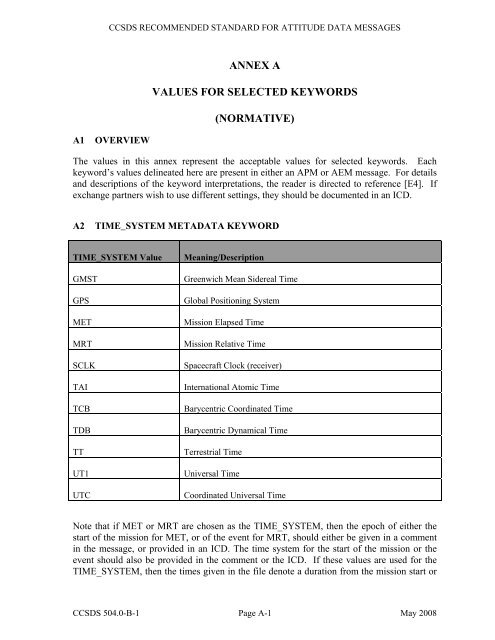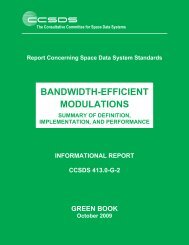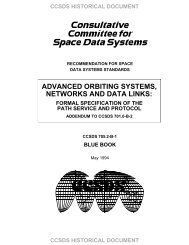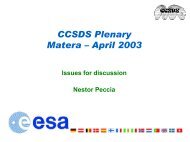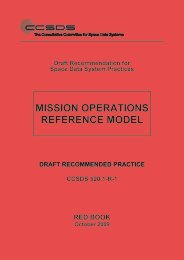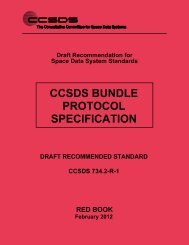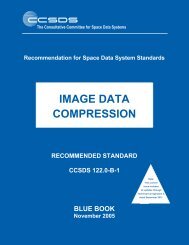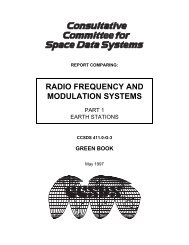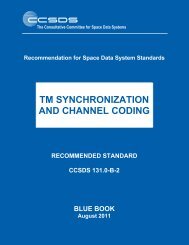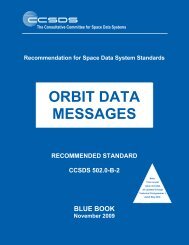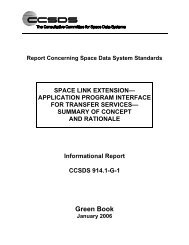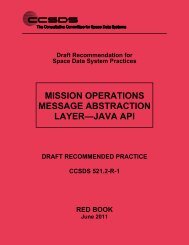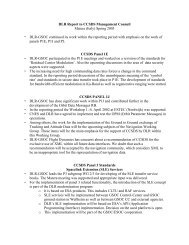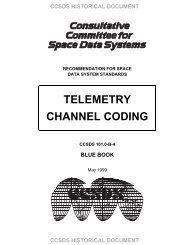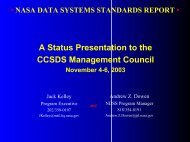Attitude Data Messages - CCSDS
Attitude Data Messages - CCSDS
Attitude Data Messages - CCSDS
Create successful ePaper yourself
Turn your PDF publications into a flip-book with our unique Google optimized e-Paper software.
<strong>CCSDS</strong> RECOMMENDED STANDARD FOR ATTITUDE DATA MESSAGES<br />
ANNEX A<br />
VALUES FOR SELECTED KEYWORDS<br />
(NORMATIVE)<br />
A1<br />
OVERVIEW<br />
The values in this annex represent the acceptable values for selected keywords. Each<br />
keyword’s values delineated here are present in either an APM or AEM message. For details<br />
and descriptions of the keyword interpretations, the reader is directed to reference [E4]. If<br />
exchange partners wish to use different settings, they should be documented in an ICD.<br />
A2<br />
TIME_SYSTEM METADATA KEYWORD<br />
TIME_SYSTEM Value<br />
GMST<br />
GPS<br />
MET<br />
MRT<br />
SCLK<br />
TAI<br />
TCB<br />
TDB<br />
TT<br />
UT1<br />
UTC<br />
Meaning/Description<br />
Greenwich Mean Sidereal Time<br />
Global Positioning System<br />
Mission Elapsed Time<br />
Mission Relative Time<br />
Spacecraft Clock (receiver)<br />
International Atomic Time<br />
Barycentric Coordinated Time<br />
Barycentric Dynamical Time<br />
Terrestrial Time<br />
Universal Time<br />
Coordinated Universal Time<br />
Note that if MET or MRT are chosen as the TIME_SYSTEM, then the epoch of either the<br />
start of the mission for MET, or of the event for MRT, should either be given in a comment<br />
in the message, or provided in an ICD. The time system for the start of the mission or the<br />
event should also be provided in the comment or the ICD. If these values are used for the<br />
TIME_SYSTEM, then the times given in the file denote a duration from the mission start or<br />
<strong>CCSDS</strong> 504.0-B-1 Page A-1 May 2008


